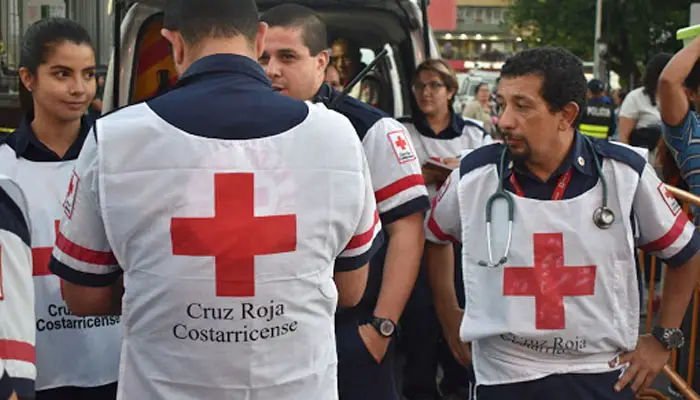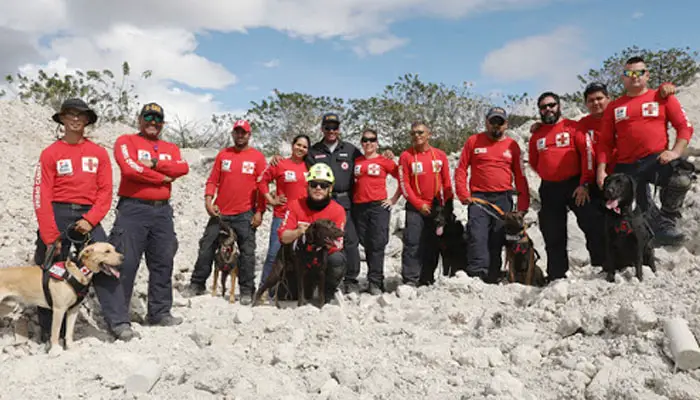
The Costa Rican Red Cross pays tribute to the dogs that make up its Canine Search and Rescue Unit, better known as K-SAR, which has been operating since 1991 and currently has eight canines.
The dogs that make up this unit are called Rosco, Soli, Kiara, Anonymus, Mosku, Lushcka, Yondu and Sukia and support search work on collapsed structures and / or in the open field.
“The specialized technical group K-SAR was created in response to the need to search for people who have been victims of a natural or man-made event. Currently, the institution has four internationally certified dogs at the sub-region level from Mexico to Panama. In addition, we have two dogs that enjoy the conditions to be able to work nationally.
 “This year we would be closing with the international training and certification of four more dogs, for a total of eight dogs capable of working nationally and internationally if humanitarian aid needs to be implemented in one or both scenarios,” said Alvin Villala, Coordinator of the K-SAR Specialized Technical Group.
“This year we would be closing with the international training and certification of four more dogs, for a total of eight dogs capable of working nationally and internationally if humanitarian aid needs to be implemented in one or both scenarios,” said Alvin Villala, Coordinator of the K-SAR Specialized Technical Group.
Dogs require a maximum of three years of training to achieve certification, and the training process extends throughout their work in search and rescue. Currently, the Costa Rican Red Cross manages two types of certifications for dogs that belong to the specialized unit: that of suitable dog (animal with working conditions and bases for further training) and that of certified dogs (even internationally and suitable for performance in work of search and rescue).
Canine training can start from the first day of birth through early stimulation. The dogs of the K-SAR Unit are trained through the motivation and interest that the dog has in games; From there, a series of steps and hundreds of exercises are built to obtain the necessary tools to enable them to search for people.
The members of K-SAR live with their canine guide, who are also institutional volunteers, since they must accompany the dog to their training sessions, keep them exercised and take them to the veterinarian, explained the notable institution.

